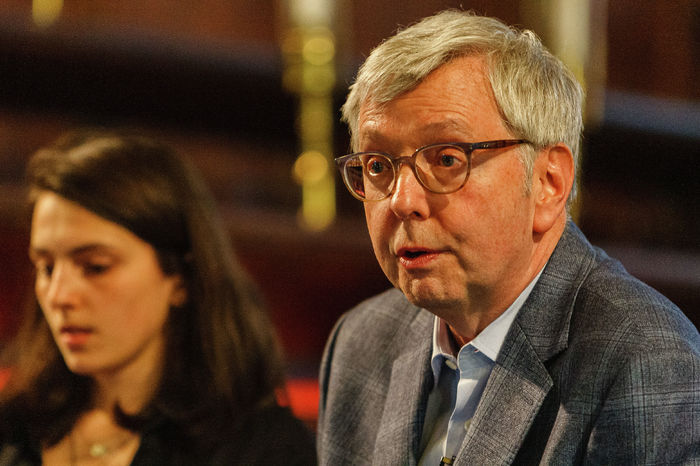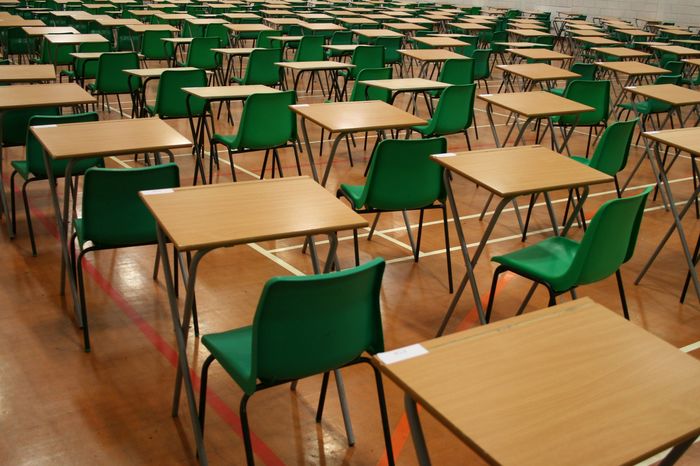Graham Virgo: Transcripts to ‘make clear’ this was ‘the COVID examination period’
Speaking to Varsity, the Senior Pro-Vice Chancellor clarifies that integrated Master’s students and those previously awarded DDH will not have a safety net – but emphasises that many assessment-related issues are still under consideration
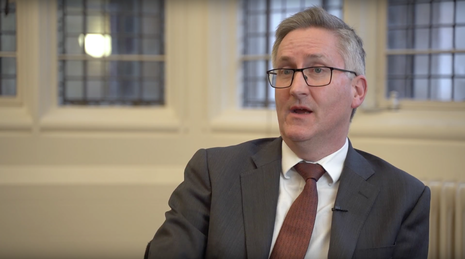
Senior Pro-Vice Chancellor for Education Professor Graham Virgo has clarified that the safety net policy will not apply to integrated Master’s students and those who obtained a Degree Deserving of Honours (DDH) in second year. But in all cases, he emphasises, transcripts will “make it clear the extraordinary circumstances in which exams were taken”.
After long-awaited details about assessments were released on Tuesday, Varsity sat down with Virgo to clarify these arrangements and voice student concerns including those surrounding DDH and integrated Master’s students, grades, Medical and Veterinary exams, faculty discrepancies, and postgraduate students.
Many issues, he urges, are still very much up in the air and under consideration. Despite this, he hopes to let integrated Master’s students know by tomorrow of assessment-related details, urges consultations with the Disabilities Resources Centre are ongoing for supporting disabled students - and stresses that postponed exams may not be held at all if Michaelmas term does not take place.
The Senior Pro-Vice Chancellor explained how equal consultation with heads of the University schools, colleges, faculties and “close contact” with other universities culminated in him “reach[ing] a point late last week” where he settled on the safety net and exam policies. Contact with the Student Union, including a “daily” phone-call with President Edward Parker Humphreys, and petitions and statements from students - “all of which were read” - he says also influenced the decision.
A hole in the net? Students who didn’t get a grade last year
When asked about why the University is not extending the safety net policy to students who did not get a grade last year, and passed into third year with a Deemed to have Deserved Honours (DDH), Virgo said “there had been an awful lot of discussion around this.”
“We feel it is not appropriate for a graduating student to rely on a safety net from their first year, that’s why we’re saying second year,” he added. “It does mean that if it’s DDH, then there is nothing that can provide the safety net. We just feel that, [with] the way Cambridge is structured, we cannot get around that.”
“However, the Disability’s Resource Centre (DRC) is engaging with this. We’re looking to see what particular support can be made available to those students. We are aware of a number of them.”
Virgo clarified that this does not apply to a student who intermitted in their third year, arguing that “any student, who, say in 2018 [was in Part] 1B and got a class and didn’t take exams in 2019, but then came back in this academic year – because they got a second year class – we’re allowing the safety net to apply to them.”
When probed further to address that fact that students who got a DDH in their second year might be the students who need pressure relieved off them the most, since they may have intermitted for mental or physical health reasons for example, Virgo said “I get that. I completely get that. But, we just felt that the first year could not be used as a safety net. However, the really important point is that DRC is fully engaged with this, and we’ll see what other support might be available for those students.”
When asked if an average class mark could be concluded from other work the student had done since first year, such as supervision reports, Virgo said: “That is the sort of thing we will see what could be done – [it will] not [be] supervision reports though. The colleges have been clear that supervision reports are not written for that reason… it’s not a prediction [of a grade], it is a statement of the quality of work in a particular term… But we may be able to do other things.”
Varsity asked what these “other things” might be and whether they could be weekly essays or other tests taken throughout the academic year, Virgo said “we don’t know; we’re open to hear what the suggestions are”, reiterating that they are talking to the DRC about what could be done.
Integrated Master’s students: no safety net, but discussions ongoing
Professor Virgo confirmed that “at the moment, the position is that there is no safety net” for fourth-year integrated Master’s students.
The reason for this, he said, is that on the whole, these students are technically on a Master’s programme and so the “the reality is [they] can graduate after the third year and they have that class in the bag already”, and so are not undergraduates. He also argues that since some students on these courses have joined Cambridge for just a year and have no previous year class, the safety net policy cannot apply to them.
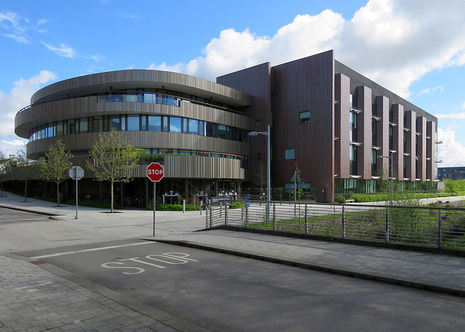
However, he says he is “well aware” of student concerns, especially where lines are more blurred, for example, for some subjects such as Engineering.
A particular concern surrounds the fact that subjects such as Part IIB and Mathematics Part III are adopting a pass/fail model, whereas others are still being graded by a class mark, including Chemical Engineering. An open letter asks for a pass/fail model like Engineering, or if not, to be protected by the safety net policy.
When asked whether the University would take into account students’ disagreement, Virgo stresses that he’s still currently “consulting on [these cases], absolutely,” and says he hopes to have “greater clarity” and let the relevant students know by tomorrow.
Regarding earlier confusion where some students received apologetic emails from Directors of Studies who said the University had not adequately informed them about the steps to not extend the safety net to them, Virgo implied this may have been a miscommunication based on “early communications” he had had with departments before arrangements were finalised.
The safety net will cover the class, not the grade
Another concern for students regarding the safety net policy is the fact that numerical marks are not protected by the safety net policy, only the class mark (i.e. first, 2:1, etc), which may impact Master’s and job offers. One student raised concerns that their Master’s offer is conditional on getting a high 2:1, which they got last year but may not again this year - meaning the safety net affords them no protection. Another student applying for a Master’s course at an international University worried they needed to obtain a certain grade percentage, with the University concerned not considering the class mark relevant at all, and so they also may be left unprotected.
When asked about these concerns, Virgo reiterated that the safety net policy will protect the class and not the exact grade – “the safety net is the classification from the second year result”.
Directors of Studies may also write references which complement transcripts and explain exactly what the situation is, which may help students applying for jobs and Master’s with specific grade requirements.
Virgo explained that on the transcript, where it states your degree outcome, it will state your third year mark, accompanied by whichever class from second or third year is highest. There will then be a statement explaining the safety net policy, where the second year class will be given, and it will be made clear that this assessment was taken during the “COVID examination period”.
Virgo further emphasised “the statement on the transcript is going to be very important” and that Directors of Studies may write references which complement transcripts and explain exactly what the situation is, which may help students applying for jobs and Master’s with specific grade requirements.
The University is also taking into account the concerns that students have and has not decided on the exact wording on the transcript yet either – “we’ll need to reflect on what we say on the safety net” in the transcript. He says he hopes to give further answers about this, following consultations, “very soon”.
Vet Med and Med students might not be able to take exams in September
When asked why Parts 1A and 1B Medical and Veterinary Sciences students are being made to take their 2nd MB examinations in September, Virgo said he was consulting the Faculties about their decision to do this.
He said that though September has been specified to some students as date, this may not be the actual date they take place as the University does not know when they will be fully operational again, and if so, exams will be held until it is. Virgo said the University is still consulting with professional bodies involved, and has asked them for “urgent clarification”.
When asked whether Vet Med/Med students will have any tuition fees reimbursed, due to missing out on a term of teaching, it was confirmed by Virgo that there would be no fee cancellations for any students next term. He says the reason for this there is still going to be an Easter term, even though it will be remote.
Differences between Faculties are fine, if justifiable
Varsity raised the fact that there had been some striking disparities between Faculties and Departments’ exam arrangements. Virgo said that his approach has been that “if they have come up with a coherent approach in modifying their assessment, and they can defend what that approach is, [then] that is entirely appropriate. The reality of course is that, for established examinations, Faculties and Departments have very different approaches already… so we are not going to suddenly move to complete consistency.”
“There are other elements to this as well. We have quite a large number of professional regulatory bodies that require particular approaches to be adopted, and that explains why some [assessments] are formative and some are summative.”
When asked about the fact some first and second years had their exams completely cancelled, such as in English, in comparison to Land Economy and HSPS students still being required to sit online timed exams, Virgo said: “It is important with first and second years that there will be different modes of assessment which will work out whether it will be formative or summative... I am content that there is difference, where that difference can be justified.”
When asked about the fact some Faculties, including Economics and History of Art, appear to be accommodating international time differences with 24 hour exams, whereas others, including HSPS, who have adopted 5 hour exams, are asking students in Asia to take their exams in the evening, Virgo said “it has got to be fair to all students depending where the students are… I will take away and ask why HSPS has done that… I will discuss that with them.”
The second sitting of assessment could be before Michaelmas term, but only if the University becomes operational again
With regards to when the second sitting of exams, which is available to students who are unable to complete the alternative methods of assessments due to personal circumstances, will take place, Virgo said that they are unable to give any more detail than that it will be when the University is “fully operational” again, as they are unable to know exactly when this will be; “We don’t know there’s going to be a Michaelmas term; we are planning for one, but we’re also modelling for other contexts as well.”
“We don’t know there’s going to be a Michaelmas term; we are planning for one, but we’re also modelling for other contexts as well.”
Virgo said that, if the University is able to accept their Michaelmas cohort in the usual way, it would suggest the University would have become fully operational before that, and therefore the second sitting of exams will have taken place before Michaelmas had begun. He emphasised that as the situation was constantly changing, he was unable to give any specific dates.
Varsity asked about how the University was accommodating students who did not have access to the internet, or did not have a laptop or computer. Virgo said those students will be eligible for the second sitting of assessment. If they are not able to return to Cambridge, there is the possibility that they will be able to take their exams in other locations.
Virgo is 'well aware there is a great deal of uncertainty' for research postgraduates
In response to one student who felt research postgraduate students were being treated as an “afterthought”, Virgo said that they are “absolutely” at the top of priorities too and “are most definitely not an afterthought”.
The Pro-Vice Chancellor explained that “part of the problem for financial packages and support is involved in wider discussions with national funding bodies to provide as much certainty as possible... I am well aware there is a great deal of uncertainty for those students, some of whom have had their research stopped. We’re doing as much as we can to get as much clarity as possible.”
“We’ve made it crystal clear that there is University hardship funding available”, which is available for research students facing financial hardship now.
Virgo said he is regularly talking to the Graduate Union President Alessandro Ceccarelli to ensure there is as much information as possible.
Virgo reassures graduate applicants to Cambridge
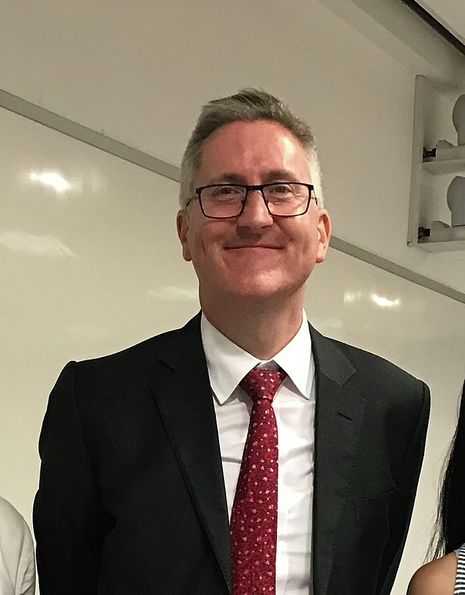
Virgo was keen to make it clear to applicants to Cambridge, who are expected to meet a certain grade for graduate degrees, that universities are taking into account the exceptional circumstances.
He assured that Cambridge is taking a “benevolent approach” to account for the circumstances exams are being taken in, and argues that he is in contact with other universities and that they will be doing the same.
“These are extraordinary times. Employers are well aware, universities are well aware - so the normal requirements just don’t apply.”
The University is listening to students
Virgo was keen to emphasise that he had read all of the open letters, petitions, and emails he had received from students, and that that student views and opinions were being taken into account. Virgo said that he would be willing to offer Varsity further interviews in the future, when more information and more questions arise.
Please do get in touch with us if you have any specific queries or concerns, or would like to share your experiences relating to assessments or next term, at news@varsity.co.uk
 News / Judge Business School advisor resigns over Epstein and Andrew links18 February 2026
News / Judge Business School advisor resigns over Epstein and Andrew links18 February 2026 News / Gov grants £36m to Cambridge supercomputer17 February 2026
News / Gov grants £36m to Cambridge supercomputer17 February 2026 News / CUCA members attend Reform rally in London20 February 2026
News / CUCA members attend Reform rally in London20 February 2026 News / Union speakers condemn ‘hateful’ Katie Hopkins speech14 February 2026
News / Union speakers condemn ‘hateful’ Katie Hopkins speech14 February 2026 News / Hundreds of Cambridge academics demand vote on fate of vet course20 February 2026
News / Hundreds of Cambridge academics demand vote on fate of vet course20 February 2026


